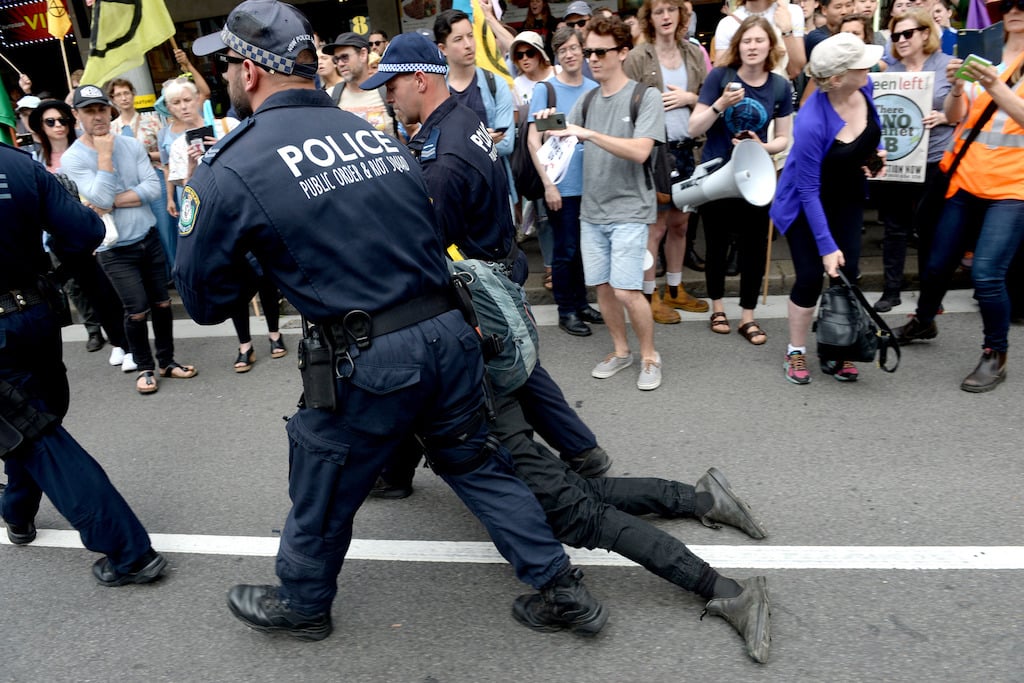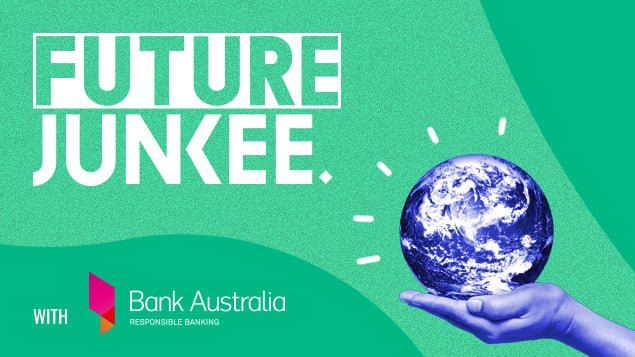Climate Activism Will Make You Less Lonely

Fighting the climate crisis seems like a pretty smart idea, for a number of reasons. Our PM loves coal, we have climate deniers, and the shorelines are drowning. Advocating for climate change won’t just save the polar bears, though — it can make you feel less lonely.
According to a 2015 VicHealth survey: “loneliness may be more detrimental to personal wellbeing than general feelings of either stress or anxiety.” It also states that one in eight young Victorians reports that their loneliness feels high and intense. And another survey discovered that one in four Australian adults are lonely.
These feelings of loneliness, coupled with climate grief, can be devastating. It can make young people feel isolated and too small to make a meaningful difference. Ish Varlin, a member of the Australian Student Environment Network (ASEN), told Junkee that “people feel alone when it comes to climate change.” He said, “there’s a lot of people who have a very keen interest in us, really believing that there is genuinely nothing that we can do about the problems that the world faces.”
However, these negative beliefs can vanish if you join a climate-focused group or community. Ish went onto say that the mere act of participating in a climate strike can help you feel less isolated. “When you’re a part of a collective, there is no way to feel alone; you aren’t alone.” This means that by just meeting bodies in a physical space, to discuss the climate crisis, you’ll probably feel less secluded.
Samantha James, a volunteer for the Australian Youth Climate Coalition (AYCC), told us that seeing climate change wins can also make you feel connected to the movement. “The first campaign I ever had was in twenty-seventeen. Westpac pulled out of funding the Adani coal mine but also of investing in any new thermal coal projects.”
This victory made Samantha reevaluate what she could do for this community. “You know, if we stop these projects going forward, then we’re stopping literally billions of tones of CO2 being released into the atmosphere,” she noted. “It’s very empowering. It removes that feeling of helplessness.” Samantha believes that the big wins — and even the loses — bring her collective together and help everyone feel less alone.

These groups furthermore bring strangers together and help activists form new friendships. Francesca de Luca, a new member of the USYD Enviro Collective, said that she felt a strong connection with her fellow marchers at the School Strike for Climate. “When you see that there’s tens of thousands of other people that are in the same boat as you,” she said. “That care, and what to do something, it can definitely make me feel a lot less anxious about the whole thing.”
Ish and Samantha also agree that climate activism can lead to mint friendships and valuable connections. Ish said, “The vast majority of close friendships, and day-to-day interactions, when it comes to social networks, are from environmental activist and political spaces… I mean it just happens really quickly. There’s a lot of shared language and history.” Samantha likewise hangs with other AYCC volunteers when it isn’t campaigning o’clock. “We go out and see bands together,” said Samantha. “I love these people like my family.”
So, if you’re a human that’s feeling alone in this current climate crisis, then maybe think about joining one of these groups. The AYCC’s running Climate Summit Bootcamps and ASEN has a sustainability conference in Jan. And if they don’t sound like your cup of tea, no worries. There is probably another enviro collective near you. That’s the great thing about these groups: they don’t seem that competitive. They want you active in a community, but one that’s a good fit for you.
The idea that we are powerless to stop climate change is a myth. And the notion that you’re doomed to feel isolated is a lie. Ish confidently said, “When people come together, and work in collective ways, for collective solutions to these problems, there’s genuinely no limit to what we can achieve.” Both Samantha and Francesca revealed similar sentiments. It appears that these groups can not only help you feel less isolated, but they can also provide an outlook of hope.
These climate-focused collectives and groups are legitimately making a difference. They are saving the planet. And while they’re doing this fantastic work, they’re also creating inclusive and meaningful spaces. They are helping their members feel empowered inside of this terrible crisis. And while these communities have more lofty goals than helping us feel less alone, it’s still an excellent outcome for all.
Joel Burrows is a journalist and playwright that doesn’t want the planet to die. His work has been published by The Guardian, Writers Bloc, and The Music.


